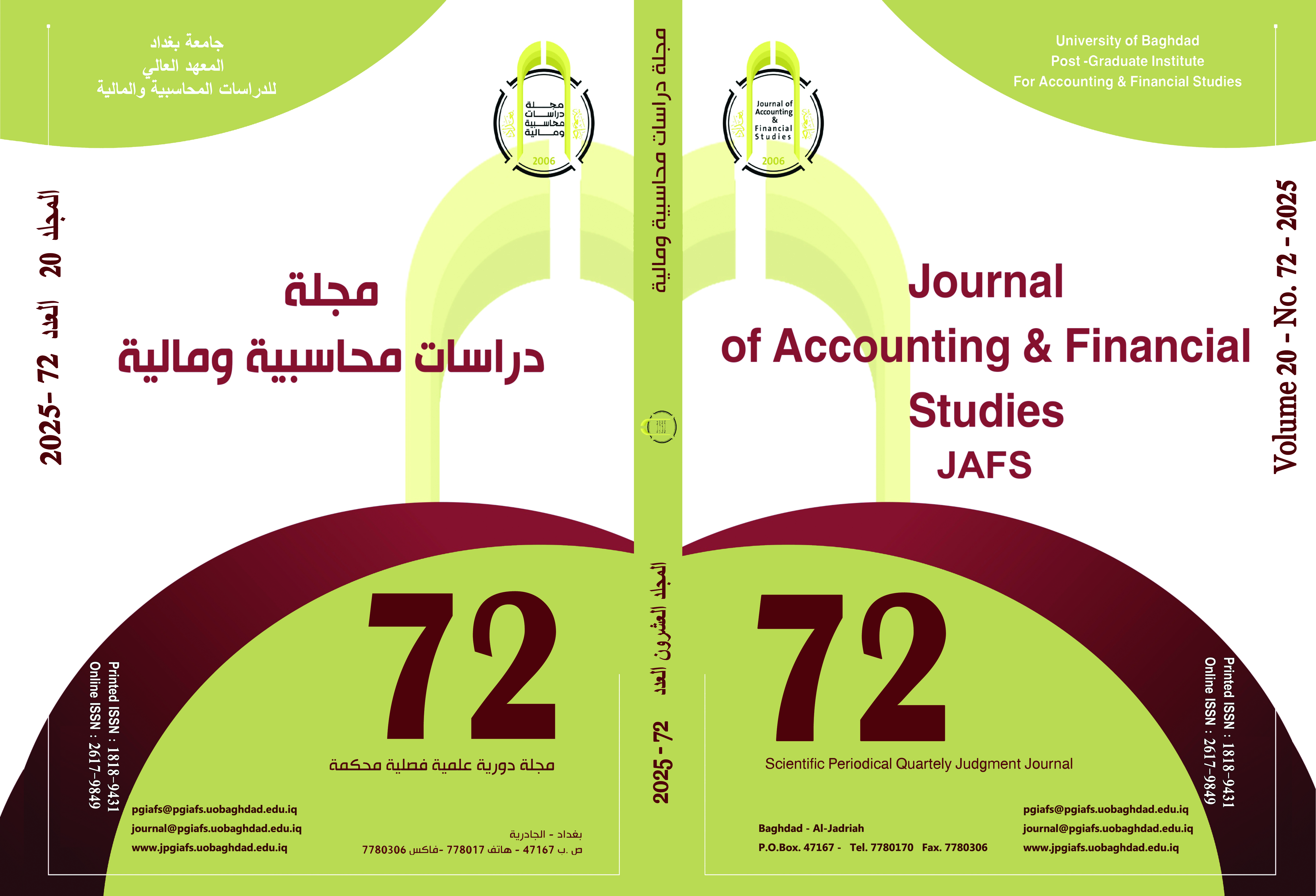The impact of artificial intelligence on the development of electronic wallets in Iraq
DOI:
https://doi.org/10.34093/tt256b27Keywords:
Artificial intelligence, Electronic banking services, Artificial intelligence indicators, Electronic paymentAbstract
The study aimed to demonstrate the impact of artificial intelligence in developing electronic wallets that achieve speed and accuracy in achievement. The research problem was represented in the question of how artificial intelligence contributes to the development of electronic wallets. The research used the distributed exponential deceleration model (ARDL) by extracting the stability of data for electronic wallets, namely (Zain Cash, Asia Hawala, Nas Pay) for the period 2021-1-2024-4. The research reached a set of conclusions, the most important of which was the use of artificial intelligence technologies in Iraqi banks that facilitate banking work and make it keep pace with scientific and technical developments in light of banking competition. Electronic wallets also operate (24) hours a day, seven days a week, for all devices and with various types of banks, with the aim of maintaining a sound and secure banking system. The most important recommendations that emerged from the study are the necessity of adopting electronic banking payment methods in Iraqi banks and improving investment strategies for managing investment portfolios to ensure that investment decisions are based on accurate and comprehensive scientific analysis of data, in addition to developing information technologies and communication networks to ensure the flow of banking services with high efficiency.
Downloads
Published
Issue
Section
License
The copyright is transferred to the journal when the researcher is notified of the acceptance of his research submitted for publication in the journal.



